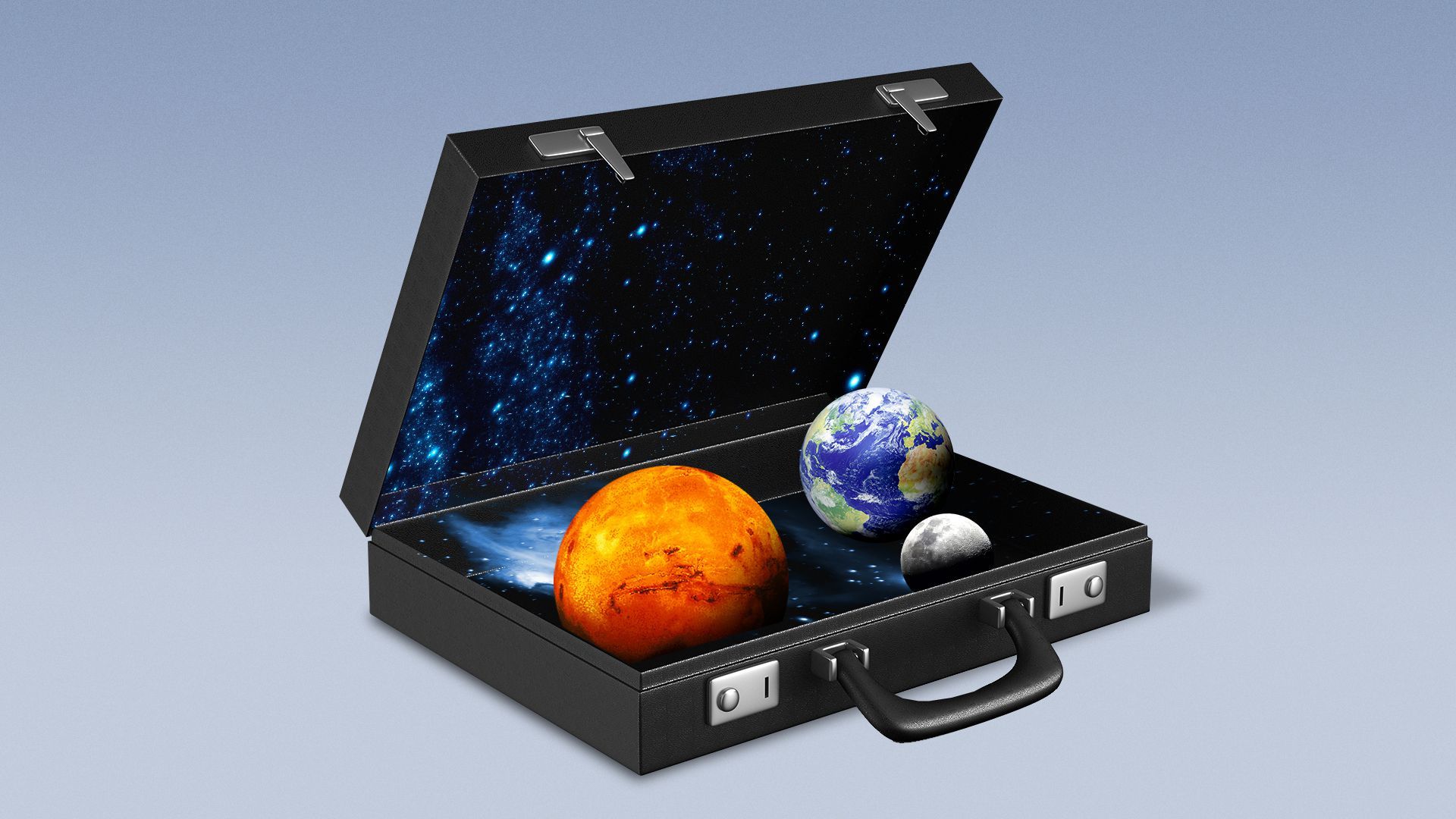NASA's future is in private space companies' hands
Add Axios as your preferred source to
see more of our stories on Google.

Illustration: Annelise Capossela/Axios
The private space players who will drive NASA's plans for the coming decade are declaring themselves and defining the stakes.
Why it matters: NASA plans to focus on getting people to Mars and the Moon, and its deep space exploration ambitions hinge on the agency being able to successfully hand over major operations in low-Earth orbit to private companies.
- The space agency hopes companies will build private space stations that its astronauts can use and to continue to buy space on private rockets for launching its satellites and other payloads to orbit and beyond.
- NASA's "big experiment" right now is to test where these commercial partnerships work, the Planetary Society's Casey Dreier told Axios.
What's happening: Last week, NASA announced it would award multimillion-dollar contracts to three teams of commercial space companies to start designing and building privately operated space stations.
- Those space stations — to be built by Blue Origin, Northrop Grumman and Nanoracks with partners — are expected to act as hubs where NASA astronauts will be able to live and work after the International Space Station ends.
- "You see the emergence of the set of players that will be active in a commercialized [low-Earth orbit] future, and then beyond," the Secure World Foundation's Ian Christensen told Axios.
- NASA has also awarded a contract to SpaceX to build a lander designed to bring humans to the surface of the Moon using its still-in-development Starship as part of the agency's Artemis program, expected to land its first crew by 2025.
Details: The space agency already relies on SpaceX and Northrop Grumman to send cargo to the ISS, and SpaceX is successfully flying astronauts to the station today.
- But now, the agency is getting more ambitious with these partnerships for its Moon program and space stations, in particular.
- "Does it work to land science instruments on the Moon?" Dreier said. "Does it work to procure spacesuits? Will it work to make reliable space stations? We don't know the answers to those."
Yes, but: This model of public/private partnership can pose risks for NASA, particularly when it comes to extremely difficult pieces of technology.
- SpaceX founder Elon Musk raised concern last week that the company could go bankrupt if its gamble on building Starship doesn't play out.
- For budget reasons, NASA is relying on SpaceX as its sole provider of a human lander to get people to the Moon, even though other companies like Blue Origin bid on the project. The space agency awarded SpaceX $2.9 billion.
- If somehow that bet doesn't pay off, NASA's plans to get people to the Moon could be called into question or at least delayed, Dreier said.
